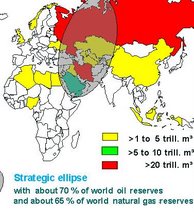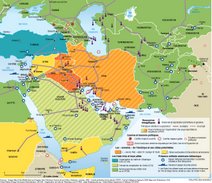 http://www.thedailybeast.com/blogs-and-stories/2010-12-08/obama-buckles-on-settlements-freeze-but-israel-heading-for-greater-isolation/
http://www.thedailybeast.com/blogs-and-stories/2010-12-08/obama-buckles-on-settlements-freeze-but-israel-heading-for-greater-isolation/Peace Requires Justice
New Language for Middle East Peace
By JOHN V. WHITBECK
The recent passage by Israel's Knesset of a law requiring either a two-thirds Knesset majority or approval by an unprecedented national referendum before Israel can "cede" any land in expanded East Jerusalem to a Palestinian state or any land in the Golan Heights to Syria has been widely recognized as making any "two-state solution", as well as any Israeli-Syrian peace, even more inconceivable than was previously the case. It also highlights the need for a concerted effort by politicians, negotiators and commentators to adopt a new “language of peace”.
The words which people use, often unconsciously, can have a critical impact upon the thoughts and attitudes of those who speak and write, as well as those who listen and read. Dangerously misleading terminology remains a major obstacle to Israeli-Palestinian peace.
It is normal practice for parties to a dispute to use terminology which favors them. In this regard, Israel has been spectacularly successful in imposing its terminology not simply on Israeli consciousness and American usage but even on many Arab parties and commentators. It has done so not simply in obvious ways like use of the terms “terrorism”, “security”, “Eretz Israel” or “Judea and Samaria” but also in more subtle ways which have had and continue to have a profound negative impact on perceptions of legal realities and other matters of substance.
Commentators on all sides speak of Israel's "ceding" territory occupied in 1967 to the Palestinians. The word suggests a transfer of land by its legitimate owner. Unless there are reciprocal exchanges of territory in a final peace agreement, the issue of Israel's "ceding" territory to Palestine does not arise. Israel can withdraw from occupied Palestinian territory or hand over administrative control of such territory, but to "cede" property one must first possess legal title to it. Israel can no more cede title to occupied Palestinian lands than a squatter can cede title to an apartment which he has illegally occupied. In reality, it is Israel which continues to insist that Palestine cede to Israel indisputably Palestinian lands forming part of the meager 22% remnant of historical Palestine which Israel did not conquer until 1967.
There is also much talk of “concessions” -- "painful", "far-reaching" or otherwise -- being demanded from Israel. The word suggests the surrender of some legitimate right or position. In fact, while Israel demands numerous concessions from Palestine, Palestine is not seeking any concessions from Israel. What it has long insisted upon is “compliance” – compliance with agreements already signed, compliance with international law and compliance with relevant United Nations resolutions – nothing more and nothing less. Compliance is not a concession. It is an obligation, both legally and morally, and it is essential if peace is ever to be achieved.
It is not only the Western-embraced Fatah which insists on nothing more and nothing less than compliance. The Western-shunned Hamas, winners of the most recent Palestinian elections, now publicly proclaims the same position. At a December 1 press conference, Ismael Haniyeh stated: "We accept a Palestinian state on the borders of 1967, with Jerusalem as its capital, the release of Palestinian prisoners and the resolution of the issue of refugees."
The Palestinian territories conquered by Israel in 1967 are frequently referred to as “disputed”. They are not. They are “occupied” -- and illegally so, since the status of "perpetual belligerent occupation" which Israel has been seeking to impose over the past 43 years does not exist in international law. While sovereignty over expanded East Jerusalem, which Israel has formally annexed, is explicitly contested, none of the world’s other 194 sovereign states has recognized Israel’s sovereignty claim and Palestinian sovereignty over the Gaza Strip and the rest of the West Bank is, in both literal and legal senses, uncontested (even if not yet universally “recognized”).
Israel has never even purported to annex these territories, knowing that doing so would raise awkward questions about the rights (or lack of them) of the indigenous population living there. Jordan renounced all claims to the West Bank in favor of the Palestinians in July 1988. While Egypt administered the Gaza Strip for 19 years, it never asserted sovereignty over it. Since November 15, 1988, when Palestinian independence and statehood were formally proclaimed, the only state asserting sovereignty over those portions of historical Palestine which Israel occupied in 1967 (aside from expanded East Jerusalem) has been the State of Palestine, a state which, even though it continues to operate within its own territory through a hobbled Trojan Horse named the “Palestinian Authority”, meets all the customary international law criteria for sovereign statehood and is already recognized as a state by over 100 other sovereign states.
Misleading language has been particularly destructive with respect to Jerusalem. For years, Israeli politicians have repeated like a mantra that “Jerusalem must remain united under Israeli sovereignty.” Understandably, Israelis have come to believe that Israel currently possesses sovereignty over Jerusalem. It does not. It possesses only administrative control. While a country can acquire administrative control by force of arms, it can acquire sovereignty (the state-level equivalent of title or ownership) only with the consent of the international community.
The position of the international community regarding Jerusalem, which the 1947 UN partition plan envisioned as an internationally administered city legally separate from the two contemplated states, is clear and categorical: Israel is in belligerent occupation of East Jerusalem and has only de facto authority over West Jerusalem. The refusal of the international community (even including the United States) to recognize West Jerusalem as Israel’s capital, supported by the maintenance of all embassies accredited to Israel in Tel Aviv, vividly demonstrates the refusal of the international community, pending an agreed solution to the status of Jerusalem, to concede that any part of the city is Israel’s sovereign territory.
There can be no question of Israel relinquishing or transferring sovereignty over any part of Jerusalem for the simple reason that Israel currently possesses no such sovereignty. Indeed, the only ways that Israel might ever acquire sovereignty over any part of Jerusalem are by agreeing with Palestine on a fair basis for either sharing or dividing sovereignty over the city (or doing a bit of both) which is recognized as fair and accepted by the international community or by agreeing with the Palestinians to transform all of historical Palestine in a single, fully democratic state with equal rights for all who live there, in which case the Jerusalem conundrum, as well as most of the other perennial roadblocks to peace intrinsic to any potential "two-state solution", would cease to pose any problem.
This legal reality is of fundamental intellectual and psychological importance for Israeli public opinion. There is a world of difference for an Israeli leader between being perceived as the man who achieved Jewish sovereignty over Jerusalem for the first time in 2000 years and being perceived as the man who relinquished some measure of Jewish sovereignty over Jerusalem. It could be a life-or-death distinction.
One word which has been too rarely used in connection with the “peace process” (and which should be invoked more often) is “justice”. For obvious reasons, it is never used by Israeli or American politicians as a component of the “peace” which they envision. Yet a true and lasting “peace”, as opposed to a mere temporary cessation of hostilities, is inconceivable unless some measure of justice is both achieved and perceived, by both sides, to have been achieved.
Israel is not generously contemplating ceding its own land to Palestine but insisting that Palestine cede indisputably Palestinian lands to Israel. Palestine is not seeking concessions from Israel, only compliance. The Palestinian territories conquered in 1967 are not disputed, simply illegally occupied. The only ways Israel might ever acquire sovereignty over any part of Jerusalem are by agreeing to share or divide the city with Palestine or by accepting a democratic one-state solution. Any true peace requires some measure of justice.
It is high time for all involved to recognize and speak clearly about these fundamental realities. The clarity of thought necessary to achieve either a decent two-state solution or a democratic one-state solution would be greatly enhanced by clarity of language, by taking care to use terminology which both reflects reality and facilitates, rather than hinders, the achievement of both peace and some measure of justice.
John V. Whitbeck, an international lawyer who has advised the Palestinian negotiating team in negotiations with Israel, is author of "The World According to Whitbeck".






























